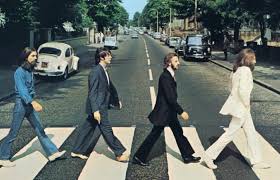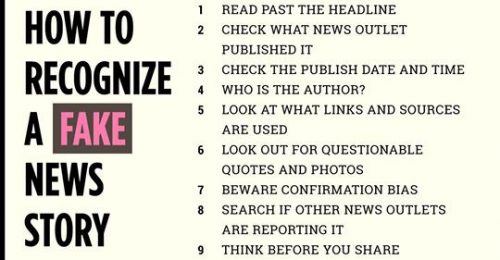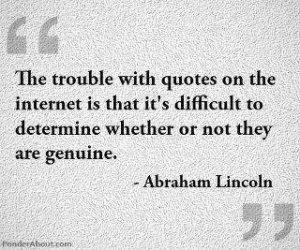Fake news is nothing new.

Fifty years ago this week, the world reeled with the news that Paul McCartney – the really cute Beatle – had died and been replaced with an imposter! For those caught up in the Beatlemania of the mid’60s, this was shocking news.
Here’s a fairly sane summary of those times from Rolling Stone, if you’re of a mind to know more. It’s not what this post is about though. Given our current dance with “alternative facts” and the relative certainty that our social media has already been invaded by forces eager to undermine our democracy, I thought it a good segue to a post on just that – FAKE NEWS.
We all know we hate it, we know it’s dangerous, and we know we’ve also been guilty of getting caught up on occasion. (Ideally, not too often and, hopefully, with full acknowledgement of our faux pas once it’s discovered.)

Urban legends, conspiracy theories, alternative facts … they seem to have evolved as I’ve grown up.
Last week, as I was preparing this post on the faux news phenomenon of which we are all far too well aware, using Paul McCartney’s urban legend death as my jumping off point, Shirley Showalter (you’ll remember her from my first Chincoteague writers’ retreat post) shared a Huff Post article to her Facebook page.
The timing was great. Here’s the lead image from that story, written by Nick Robins-Early, which I’d missed.

Not bad, huh?
Shirley’s followers added more tips on how they weed through the myriad stories that fly our way, which gave me a better idea.
You don’t need me to tell you how to do it. You’ve got your own ideas, I’m sure. And I’d love to hear what you do, what you watch out for, what you guard against.
Use the COMMENTS section here or the CONTACT form on the website to add the various links and tricks you’ve collected. I’ll combine them with mine and add a follow-up to this post the first Wednesday in November.
How do you judge what to believe and what to disdain? Is that even the right question?

Ally Bean
The how to recognize a fake news story infographic is a perfect summation of my Mass Media Law class in grad school. Not kidding, that’s exactly what we were taught to do. As for what I guard against now that I’m well beyond my college years, I’d say I pay attention to the person who is sending any news my way. We all have our biases, but some people seem to be incapable of rising above them, intent on mudding the waters regardless of objective truth.
Ally Bean recently posted…One-Liner Wednesday: A Mantra Courtesy Of A Three Year Old Girl
Janet Givens
How good that you actually had a class on this stuff. Too bad it’s not offered earlier than grad school. I’ll be adding one more item to this list, which I thought was quite comprehensive. Thanks for starting us off, Ally.
Clive Pilcher
Fake news has been around for years, but in these days of mass communication it is much easier to spread it around, and it can fool the best of us. If I have any doubts about something, I check it out with Snopes or another reliable fact checker. They aren’t often wrong.
Clive Pilcher recently posted…Still Trying To ‘Take It Easy’
Janet Givens
Hi Clive, yes indeed, hasn’t it though. Do you remember all the clues supposedly buried in the albums? One only had to play them backwards to hear. I never did as I was off into another world in those years. I’m glad you mentioned Snopes.com too. I’ve found quite a few fact checking sites; Snopes is the granddaddy of them all.
Laurie Buchanan
Janet — I’m still laughing at the Abraham Lincoln quote you used at the end. If I’d been drinking coffee when I read it, it would have shot out my nose with the full force of laughter!
Laurie Buchanan recently posted…Fair Trade
Janet Givens
I’m glad. It is a good one.

Janet Givens recently posted…A Look At Fake News
Joan
Fake News is part of our technological age. We can spread trash around in minutes these days. First it was the radio, then TV. But still there is nothing as speedy as the internet. We need to be careful.
Janet Givens
Indeed we do, Joan. At least readers are thinking about it, about the possibility they may be being misled.
Carol Taylor
The power of the internet for both good and bad…I am getting caught less than I was. Snopes and Media Bias are a good start for me…I do however think the penalties should be harsher especially by Social media sites…It is always good to highlight as a reminder to us all

Carol Taylor recently posted…National Pumpkin Month…Facts…Trivia and allergy-friendly mummy bars…
Janet Givens
An interesting idea, Carol — penalties. I guess currently the only sanction is social, huh? (ironic) I wonder how a fine might be imposed. Or what a stronger sanction might me. You’ve got me thinking anew here. Thanks.
Janet Givens recently posted…A Look At Fake News
Pamela
I guess it all goes with the old adage “consider the source.” Which is why I don’t read ANY political points/quotes/messages on social media, including Facebook and Twitter and LinkedIn. I don’t feel like I can trust any of those sources, since I don’t know where most of it comes from. And even my closest “friends” on social media have been bambozzled and sucked in to fake news, so I can’t “trust” them when they spout off something horrible. I read publications I ‘kinda’ trust, like the Wall Street Journal and Time magazine, I used to never watch TV news, but when I see a politician make a quote right there in public, I know that “oh my yes he really said that.’ because I saw it right on camera.
All sad. That said, I remember the fear that Paul was dead. And as a young teen, I didn’t believe one iota of it, even though several of my friends played their Beatles album backwards.
Pamela recently posted…The Dollar Bill
Janet Givens
I’ve wondered for awhile if I ought to stop sharing political stuff on Facebook, keep it just for my writing as it was at first (LinkedIn is for my therapy practice) and I only dabble at Twitter and Pinterest. On my FB Author page, all I post are links to articles (mostly dealing with culture, but politics tends to be a big part of that), so I’d have little to share there. But, on my profile page, I’m thinking what that would be like for me not to share political ideas, memes, and articles. It’s become such a big part of what I post. Then I realize that politics has been a big part of my life for always, so it seems they may go hand in hand. You’ve also got me thinking, Pam. Thanks.
Pamela Wight
It’s a dilemma, because if we all stop writing about it, then all the “bad stuff” that’s coming out of the White House and from our representatives gets left unacknowledged. That’s not good either. Perhaps a blog post is the best way to share your political views, because those who visit you here trust you. I know I do!
Janet Givens
I do think it’s good to share our POV, and hold fast to the counterintuitive idea that “I could be wrong.” When I get my readers to think anew about something, I am quite content.
Big announcement coming. I think I’ll post now on fb. Thanks for the nudge.